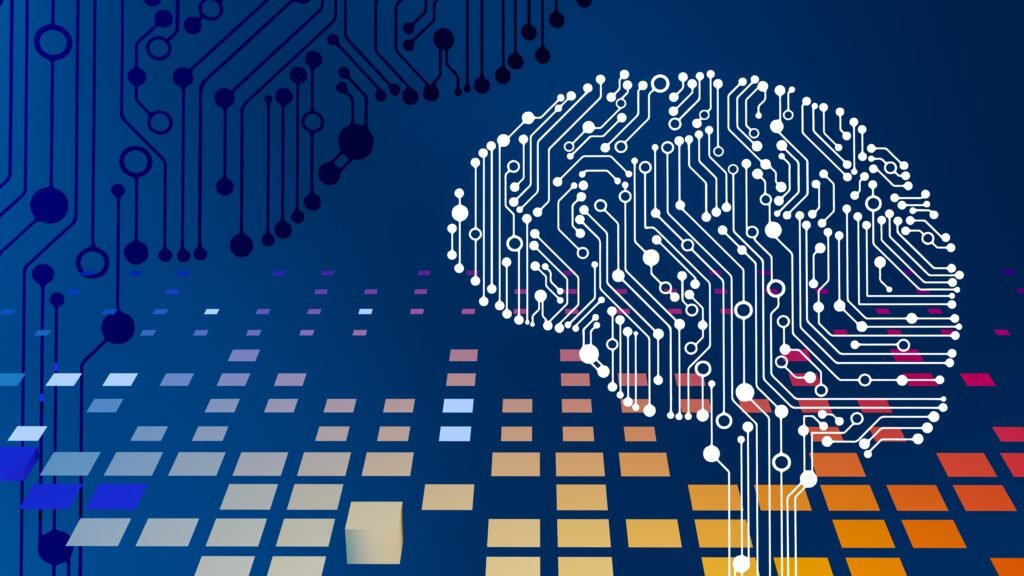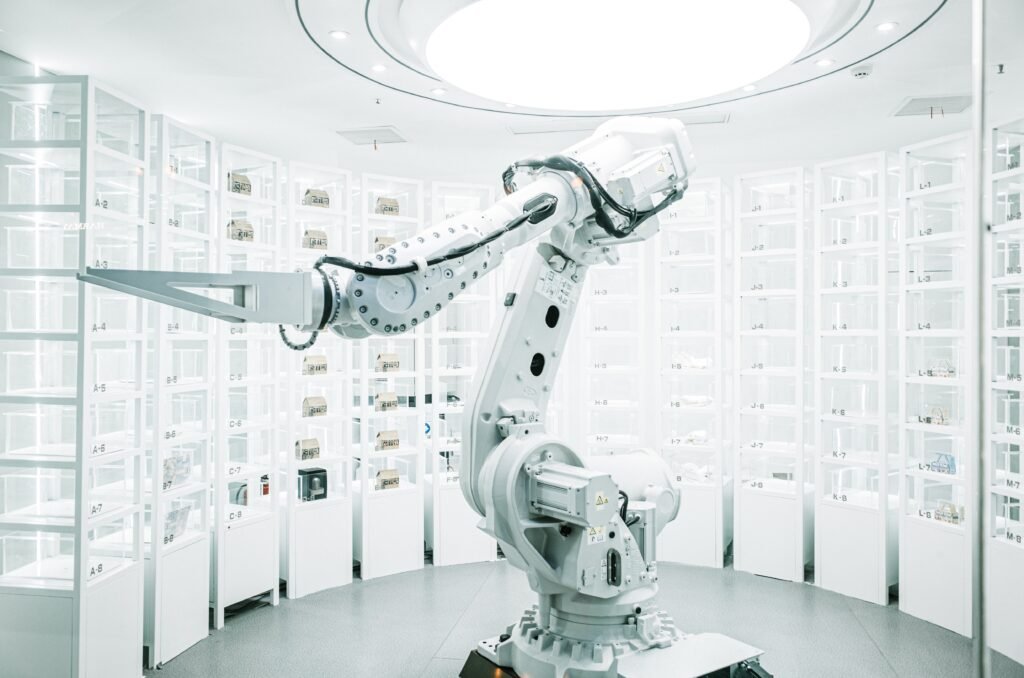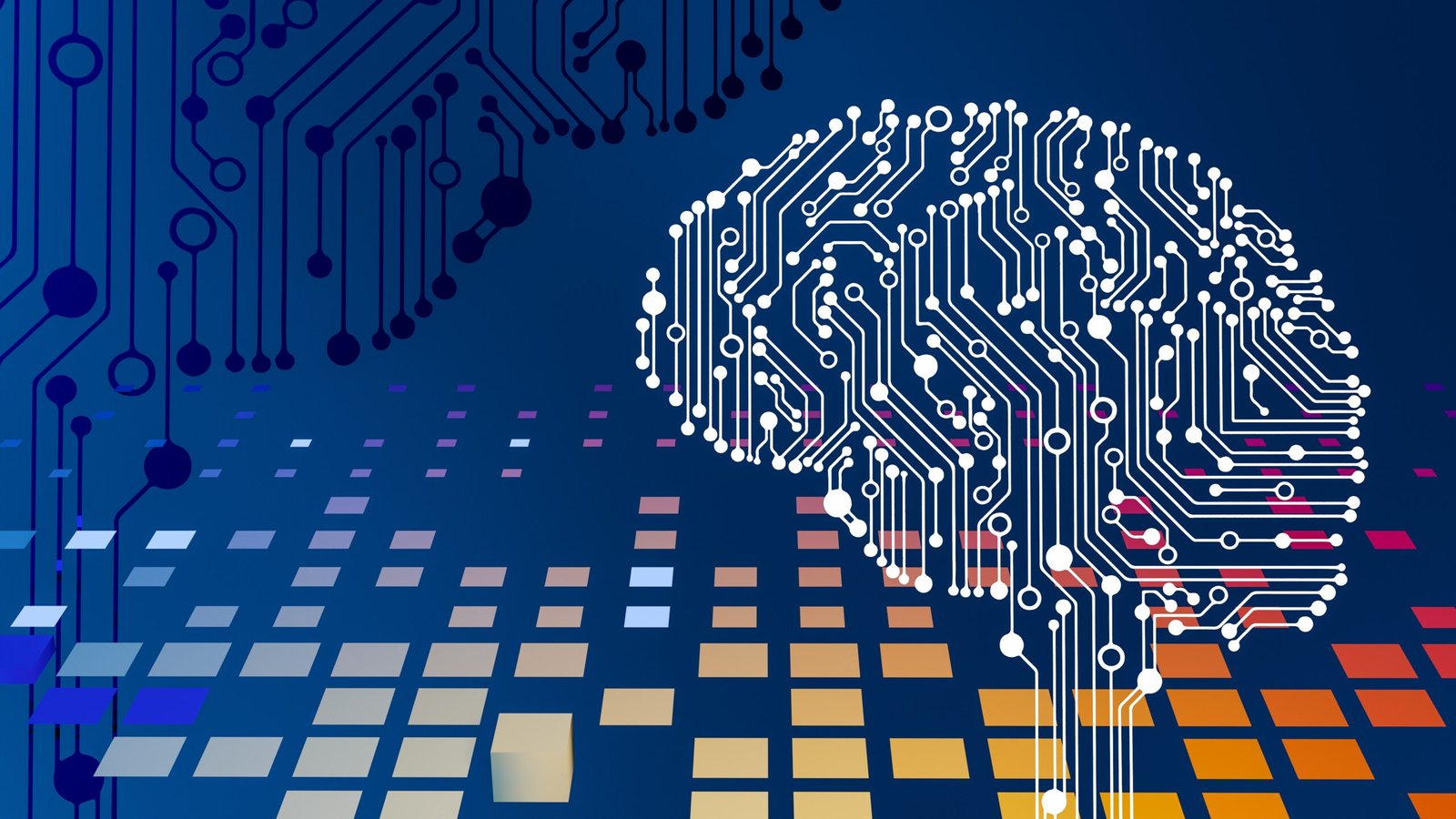Artificial Intelligence, a term that has garnered much buzz and fascination over the years. But you may, at times, find yourself questioning its existence. Is it merely a product of science fiction or a real phenomenon shaping our modern world? In this article, we will explore the reality of artificial intelligence, its capabilities, and shed light on whether it truly exists in the way we envisage it. So, let’s embark on this fascinating journey and demystify the concept of artificial intelligence together.

The Definition of Artificial Intelligence
Artificial Intelligence (AI) is a fascinating and ever-evolving field that strives to develop intelligent machines capable of mimicking human cognition and behavior. At its core, AI involves the creation and study of computer algorithms that can perform tasks that typically require human intelligence. These tasks range from language processing and problem-solving to pattern recognition and decision making.
AI as a field of study
AI is not a new concept, as the field has been around for several decades. However, recent advancements in computing power, data availability, and algorithm development have revitalized research and applications in this area. AI researchers explore various techniques and methodologies to enable machines to exhibit intelligent behavior and learn from their experiences.
The Turing test
One landmark event in AI history is the Turing test, proposed by British mathematician and computer scientist Alan Turing in 1950. The Turing test aims to determine whether a machine’s behavior is indistinguishable from that of a human. In the test, an interrogator engages in a conversation with a human and a machine, without knowing which is which. If the interrogator cannot distinguish between the two, the machine is considered to have passed the Turing test.
Different levels of AI
Artificial Intelligence can be categorized into different levels based on its capabilities. At the lower end, there is Weak AI, also known as Narrow AI, which is designed to perform specific tasks with high proficiency. Examples of narrow AI include voice assistants like Siri and Alexa, which can answer questions, play music, and control smart devices.
On the other hand, there is Strong AI, also referred to as General AI, which aims to develop machines that possess human-level intelligence across a wide range of tasks. This level of AI remains an aspiration and has not yet been achieved, but researchers and scientists continue to work towards this goal.
Narrow AI: The Current State of Artificial Intelligence
As of now, the majority of AI applications fall under the category of Narrow AI. These systems are designed to excel in specific domains and perform a limited set of tasks. However, their performance in these tasks can often rival or even surpass human ability.
Practical applications of Narrow AI
Narrow AI has made significant strides in various industries, including healthcare, finance, and transportation. For example, in healthcare, AI algorithms can analyze medical images to detect abnormalities or assist in diagnosing diseases. In finance, AI-powered trading systems can analyze vast amounts of data and make informed investment decisions. Transportation companies also employ AI to optimize routes, predict demand, and enhance safety.
Machine Learning and Deep Learning
Machine Learning (ML) and Deep Learning (DL) are two essential subfields of AI that have accelerated the development of Narrow AI. Machine Learning involves training algorithms on large datasets to learn patterns and make predictions without explicitly programmed instructions. Deep Learning, an advanced form of ML, utilizes artificial neural networks inspired by the human brain.
These approaches have revolutionized several domains, such as natural language processing, image recognition, and autonomous driving. Their ability to learn from vast amounts of data has unlocked new possibilities and improved the accuracy and efficiency of AI systems.
Virtual personal assistants
Virtual personal assistants, such as Apple’s Siri, Google Assistant, or Amazon’s Alexa, have become ubiquitous in modern households. These AI-powered tools provide voice-based interactions, answering questions, providing recommendations, managing calendars, and controlling smart home devices. Their ability to understand natural language and adapt to user preferences has made them valuable companions in our daily lives.
AI in Science Fiction: Separating Fact from Fiction
Artificial Intelligence has captured the imagination of humans for decades, often depicted in science fiction as either a utopian savior or a dystopian menace. While these portrayals make for compelling storytelling, it is important to distinguish between the fictionalized versions of AI and the current reality.
Depictions of AI in popular movies and books
Science fiction movies and books have given us memorable AI characters like HAL 9000 from “2001: A Space Odyssey” and Skynet from “Terminator.” These fictional AIs often possess superhuman intelligence and abilities, leading to catastrophic consequences or saving the world from imminent threats. However, it is vital to remember that these are imaginative creations designed to entertain rather than reflect the real-world capabilities of AI.
The limitations of fictional AI
One of the main limitations of fictional AI is their human-like consciousness and understanding of emotions. While scientists are making strides in creating AI systems that can mimic human behavior, consciousness and emotions remain elusive qualities that have not been fully replicated. Additionally, the idea of AIs becoming highly autonomous and malevolent, as portrayed in science fiction, is far from the current state of AI development.
Ethical implications of AI in science fiction
Science fiction also explores the ethical implications of AI, raising questions about the relationship between humans and machines. Films like “Blade Runner” and “Ex Machina” delve into themes of morality, autonomy, and the potential dangers of AI surpassing human capabilities. These narratives serve as a cautionary reminder to consider the ethical ramifications of AI as it continues to evolve.
The Philosophical Debate on AI Existence
The question of whether AI can truly exist as an intelligent, conscious entity has become a subject of intense philosophical debate. Understanding the nature of intelligence and consciousness is crucial in examining the potential of AI.
The nature of intelligence and consciousness
Intelligence can be broadly defined as the ability to acquire knowledge, understand, reason, and apply that knowledge to solve problems. Consciousness, on the other hand, refers to the state of being aware and having subjective experiences. While humans possess both intelligence and consciousness, determining whether machines can possess similar qualities is a complex and controversial topic.
Human-like intelligence vs. Machine intelligence
One aspect of the philosophical debate centers around whether AI systems can achieve human-like intelligence or merely operate based on predefined algorithms. Some argue that intelligence is not solely the result of conscious experience but rather a product of information processing and computational abilities. Others contend that true intelligence requires self-awareness, intentionality, and consciousness, traits that are yet to be fully replicated in machines.
The Chinese Room argument
The Chinese Room argument, proposed by philosopher John Searle, challenges the idea that mere computation can equate to true understanding or intelligence. Searle presents a scenario where a person sits in a room, following instructions in English to manipulate Chinese symbols and produce responses. While the person may provide appropriate answers, they do not actually understand the meaning behind the symbols. This argument raises fundamental questions about the relationship between computation and true intelligence.

AI in Everyday Life: Common AI Applications
Artificial Intelligence has become deeply integrated into our daily lives, often operating behind the scenes to enhance and optimize various aspects of our routines.
AI in social media algorithms
Social media platforms utilize AI algorithms to curate personalized feeds and recommendations for users. These algorithms analyze user preferences, behaviors, and interactions to deliver content that is most likely to engage and resonate with individuals. AI-powered content moderation systems also help identify and filter out inappropriate or harmful content.
AI-driven recommendation systems
Recommendation systems have become a common feature in e-commerce platforms, streaming services, and news websites. By leveraging AI algorithms, these systems can understand user preferences, track browsing history, and make intelligent suggestions for products, movies, music, or articles. This personalized experience enhances user satisfaction and encourages continued engagement.
AI in healthcare
Artificial Intelligence has made significant advancements in the healthcare sector, improving diagnostic accuracy, drug discovery, and patient care. AI algorithms can analyze medical images, such as X-rays and MRIs, to detect abnormalities or assist in diagnosing diseases. Machine Learning models can also predict patient outcomes and personalize treatment plans based on individual characteristics, leading to more effective and efficient healthcare.
The Future of Artificial Intelligence
As AI continues to evolve, its impact on various aspects of society will undoubtedly expand. Several trends and possibilities shape the future of AI, presenting both opportunities and challenges.
AI and automation in the job market
AI and automation technologies have the potential to transform the job market, with certain tasks becoming automated and new job roles emerging. While routine and repetitive jobs are more susceptible to automation, AI can also augment human capabilities and create new opportunities. The key lies in upskilling and adapting to the changing demands of the workforce.
Advancements in General AI
Although General AI remains an ongoing pursuit, recent advancements have shown promising progress. Researchers are exploring approaches that enable machines to understand complex natural language, reason across different domains, and exhibit adaptable and creative problem-solving skills. Achieving General AI would require addressing various technical and ethical challenges thoroughly.
Ethical considerations and regulations
As AI becomes more pervasive, ethical considerations and regulations must be carefully addressed. Questions regarding privacy, algorithmic bias, and accountability become increasingly important. Establishing frameworks and guidelines that promote transparency, fairness, and societal benefit will be essential to ensure responsible AI development and deployment.

The Challenges of Developing AI
Developing AI systems comes with its unique set of challenges, ranging from technical limitations to ethical and societal concerns.
Data privacy and security
AI relies heavily on vast amounts of data to learn and make predictions. However, ensuring the privacy and security of this data is of utmost importance. Organizations must implement robust privacy protocols and security measures to protect sensitive information and prevent unauthorized access.
Bias and fairness in AI algorithms
AI algorithms are only as good as the data they are trained on. If the training data contains biases or reflects societal inequalities, the resulting AI systems can perpetuate and amplify those biases. Ensuring fairness and avoiding discrimination in AI algorithms requires diverse and representative data, as well as careful monitoring and evaluation.
Unintended consequences of AI
As AI systems become more complex and capable, the potential for unintended consequences increases. These consequences can range from minor errors to severe societal impacts. Thorough testing, rigorous validation procedures, and ongoing monitoring are necessary to identify and address these unintended consequences.
Ethical and Legal Implications of AI
The rise of AI also raises important ethical and legal considerations that society must grapple with.
AI and privacy rights
The widespread use of AI systems often involves the collection and analysis of personal data. Protecting individual privacy rights is paramount, requiring clear regulations and safeguards to ensure that personal information is not misused or disclosed without consent. Striking the right balance between the potential benefits of AI and the protection of privacy rights is a crucial challenge.
AI and employment ethics
The increasing automation of jobs through AI raises concerns about the displacement of human workers and societal implications. Organizations and policymakers must consider the ethical dimensions of AI-driven job loss and the responsibility to provide alternative employment opportunities or support mechanisms for affected individuals.
Legal frameworks for AI
As AI continues to advance, legal frameworks need to keep pace with the technology. Establishing laws and regulations that govern the development, deployment, and use of AI systems is vital to ensure ethical and responsible practices. These frameworks should address issues such as liability, accountability, transparency, and the ethical considerations of AI in various industries.
AI and Human-Computer Interaction
Advancements in AI have transformed how humans interact with computers and technology, paving the way for more intuitive and natural interfaces.
Natural language processing and understanding
Natural Language Processing (NLP) enables machines to understand and interpret human language, facilitating seamless communication between humans and machines. Voice assistants and chatbots leverage NLP techniques to understand and respond to user queries, offering a more conversational and human-like interaction.
Computer vision and object recognition
Computer vision technology enables machines to interpret and analyze visual information, allowing them to recognize objects, people, and scenes. This capability is at the core of applications like facial recognition, image search, and autonomous vehicles. Computer vision algorithms can process and extract meaningful insights from vast amounts of visual data.
Emotional AI
Emotional AI, also known as Affective Computing, focuses on recognizing and responding to human emotions. By analyzing facial expressions, tone of voice, or physiological signals, AI systems can detect emotional states and personalize interactions accordingly. Emotional AI has potential applications in mental health, customer service, and human-computer interaction.
The Debate Continues: Arguments For and Against AI Existence
The debate surrounding the existence and capabilities of AI continues to provoke thought and debate among experts and the general public.
AI as a tool vs. AI as autonomous intelligence
One perspective argues that AI is merely a tool created by humans to assist and augment human capabilities. From this viewpoint, AI lacks true consciousness and self-awareness. On the other hand, proponents of AI existence believe that as technology advances, machines may develop more autonomous intelligence, potentially comparable to or surpassing human intelligence.
The capacity for consciousness in AI
The question of whether AI systems can possess consciousness, subjective experiences, or self-awareness remains unresolved. The nature of consciousness itself is still not fully understood, making it challenging to determine if AI can genuinely replicate or achieve this quality. It raises philosophical questions about what it means to be conscious and whether it is a necessary component of intelligence.
The Singularity theory
The Singularity theory, popularized by futurist Ray Kurzweil and others, suggests that AI will reach a point where it surpasses human intelligence and initiates a technological revolution. This hypothetical moment, known as the Singularity, could lead to unprecedented advancements and changes in society. While the realization of the Singularity remains speculative, it fuels discussions about the future role and impact of AI.
In conclusion, Artificial Intelligence encompasses a vast and dynamic field of study with numerous applications and implications. From narrow AI that dominates our current technological landscape to the philosophical debates on AI’s existence and consciousness, the impact of AI is evident and ever-expanding. As we forge ahead into an AI-driven future, it is crucial to navigate the challenges and ethical considerations associated with this technology to ensure that AI continues to serve as a force for positive change.






